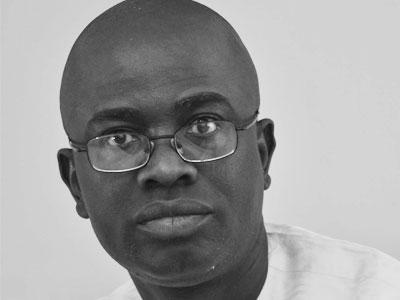Expectedly, condemnation has trailed last Thursday’s lynching of Miss Deborah Samuel by her College of Education, Sokoto colleagues for alleged blasphemous post on WhatsApp. As I commiserate with her traumatized family, I hope this unfortunate killing does not degenerate into another Christian versus Muslim crisis, because it is not about religion. The issue is also not about the legality of blasphemy but about the eagerness and recklessness of those who take law into their own hands and perpetrate extrajudicial killings. Since it is about the rule of law and sanctity of life in Nigeria, those who shield perpetrators of this kind of cruel vigilante justice are also complicit.
Instructively, two days after Deborah was murdered in Sokoto, a sound engineer identified as David was lynched and burnt to death at Lekki in Lagos. Purportedly due to a misunderstanding with a commercial motorcyclist, popularly called Okada rider, over N100 change. Although the Lagos suspects have been arrested by the police and Governor Babajide Sanwo-Olu has made the usual pledge that justice will prevail, the reality of existence in Nigeria today is that of mob rule. But before I come back to this, let’s dispense with the issue of blasphemy.
A report by the American Pew Research Center published in January this year revealed that “79 countries and territories out of the 198 studied around the world (40%) had laws or policies in 2019 banning blasphemy, which is defined as speech or actions considered to be contemptuous of God or of people or objects considered sacred.” Blasphemy laws, according to the respected research center, “were on the books in 2019 in all five global regions covered by the analysis, including 18 countries in sub-Saharan Africa, 17 in the Asia-Pacific region, 14 in Europe and 12 in the Americas.” But it is noteworthy that in recent years, many Western countries have been walking away from blasphemy legislation. In December 2018, for instance, Canada repealed section 296 of the criminal code which states: “Everyone who publishes a blasphemous libel is guilty of an indictable offence and liable to imprisonment for a term not exceeding two years”.
Meanwhile, I do not know how ‘blasphemy’ in Islam applies to Christians in a multi-religious country that pretends secularity, but the real problem is the ease with which people take the law into their own hands. Not to mention the tacit endorsement such criminals receive when identity is involved. Even if we assume that the late Deborah published something considered blasphemous, should anybody or any group of people have the right to be her accuser, judge and executioner? I am delighted that respected Islamic scholars including Ahmad Gumi, Nurudeen Lemu and others have weighed in. But our courts have also settled this matter conclusively in the murder of Abdullar Alhaji Umaru, although the criminal suspects were Muslims.
The story began on 14th July 1999 when one Abubakar Dan Sallah and five friends were told that Umaru was heard abusing Prophet Mohammed at Randali Village in Kebbi State. “On hearing this, Muhammadu Sani (3rd accused) used a machete which was with him on Abdullah Umaru on the head and Abdullah fell down. Then Abubakar Dan Shalla (5th accused) slaughtered Abdullah with a knife on the neck just like a goat. When they were sure that Abdullah died, they all dispersed and ran away. We too left the corpse and went home,” said one of the accused persons at the Kebbi State High Court where they were charged for murder.
At the end of trial, Justice Mohammed Suleiman Ambursa (currently the Chief Judge of Kebbi State) convicted Sallah and his friends and sentenced them to death by hanging. The judgement was affirmed by the Court of Appeal, Kaduna Division in October 2003. The case then went to the Supreme Court where on 12th October 2012 the five Justices (Sylvester Umaru Onu, George Adesola Oguntade, Aloma Mariam Mukhtar, Walter Samuel Onnoghen and Ibrahim Tanko Muhammed) unanimously upheld the conviction. Interestingly, the main authority in that judgement happens to be the current Chief Justice of Nigeria (CJN), Justice Muhammed. He delved into Islamic jurisprudence to arrive at his own position: “The trite position of the law under Sharia is that any sane and adult Muslim, who insults, defames or utters words or acts which are capable of bringing into disrepute, odium, contempt, the person of Holy Prophet Muhammad (SAW) such a person has committed a serious crime which is punishable by death. However, as observed by the court below, Islamic law has not left the killing open in the hands of private individuals. The offence alleged has to be established through evidence before a court of law“. In the same murder trial that also ended in a unanimous death sentence for another accused person, Usman Kaza at the apex court, it was the current CJN who also delivered the vital verdict: “Sharia guarantees and values the sanctity and dignity of human life. The Quran has several verses in various chapters where it outlaws such nefarious acts. For instance, it provides in chapter 6 (Surat – An’ Am) verse 151 as follows: ‘And do not kill the souls Allah has forbidden (to be killed) except by legal right.’”
The message here is simple: In a society where life could be so casually snuffed out by a mob of irrational people, as it happened to Deborah, everything else is game. All forms of mob rule are heinous. But one associated with blasphemy is particularly dangerous because of the potential for sparking ethno-communal reprisals that often spin out of control. We must therefore come down heavily on jungle/mob justice, whether motivated by religious or other considerations because anyone can fall victim. That unfortunately is what those who are justifying the daylight murder of a fellow human being fail to understand.
Incidentally, I addressed this issue on 9th June 2016, following a similar ‘blasphemy killing’. I invite readers to go through it again so that we can understand what fuels Nigeria’s gradual descent into anarchy.
================================================
Until last Thursday afternoon, Mrs Bridget Abahime, an indigene of Orodo town, Mbaitoli LGA in Imo State, was selling plastic materials at the popular Kofar Wambai market in Kano. An altercation with a neighbor led to the 74-year-old woman being accused of speaking blasphemy. The mob moved in to complete the rest of the tragic story and today, Mrs Abahime is no more.
President Muhammadu Buhari, Governor Umar Ganduje and other critical stakeholders have all condemned the gruesome murder with the usual promise by the Police that the main suspects, who have already been apprehended, will be brought to justice. I am sorry to say, I have no faith in that pledge. While the authorities may express indignation over this specific murder, perhaps because of our delicate fault-lines, it is important for us to also note that it is a familiar crime that will happen again. The Kano tragedy particularly rankles because, as the 17th century French mathematician, Blaise Pascal, pointed out, “men never do evil so completely and cheerfully as when they do it from a religious conviction.”
However, before we address the issue of “blasphemy”, we must first deal with the impulse that drives Nigerians to take the life of fellow citizens, most often without any rational justification. In 2008, a commercial motorcycle (Okada) rider hit a woman on Aba/Port Harcourt Expressway in the Rivers State capital, claiming that he saw three cats crossing the road and that it was after hitting one of them that it turned to the woman. The poor victim of a careless ‘Okada’ rider was immediately pounced upon and clubbed to death. You will find the story online. There is also a video of an eleven-year-old boy named Samuel who was lynched because, according to the mob, he was TRYING to kidnap a school child like himself with N50. The image was shown on a private television station in Lagos. It didn’t matter to his accusers who were dragging him along concrete road that the boy was vehemently protesting his innocence as they hit him with dangerous objects before eventually setting him ablaze. That incident sparked an online campaign called “Don’t Walk Away”.
If that campaign meant anything, it made no impact on 21 July 2013, when a 25-year-old undergraduate of Delta State University, Ifechukwude Nwainokpor, and his friend (identified simply as Kazeem) were attacked and beaten to death by a mob at the Ajara area of Badagry because “their faces looked strange in the neighborhood”. According to Mr. Samuel Nwainokpor, his son, Ifechukwude and friend were just passing through a street in the area when a misunderstanding ensued between them and some hoodlums who eventually handed them over to the Vigilante. If you are interested in how the two young men were murdered, just Google and you can read and watch the eight-minute gruesome video clip on your mobile handset.
Because of the outrage that followed that tragedy, the then spokesperson for the Lagos State Police Command, Ngozi Braide, had this to say: “The incident is quite pathetic. Even if they were armed robbers, no one has the right to take the life of another. Why then do we have the police and the judiciary? The Nigerian police as well as the law condemn mob action and jungle justice. The commissioner of police has set up a high-powered investigation body to investigate the matter.”
Of course, we are yet to know the result of that “high-powered investigation body”. What we do know is that between then and now (2016), there have been dozens of cases of extra-judicial killings of people “convicted” of robbery by the mob and you will find many of them on Youtube. Yet, as it happened in Kano, many of those Nigerians may not have committed the offence for which they were so exterminated by the mob. At least, that was the case with the ‘Aluu Four’, which is documented in Wikipedia as “necklace lynching”.
For those who may have forgotten, the ‘Aluu Four’ refers to four undergraduates at the University of Port Harcourt – Chiadika Lordson; Ugonna Kelechi Obuzor, Mike Lloyd Toku and Tekena Elkana – who were roasted alive by a mob on 5th October 2012 on the allegation that they were thieves. As it was later to be revealed, the students were attempting to collect a debt from a man who instigated the mob against them by alleging that the students were trying to steal laptops and mobile phones. The tragedy was captured live as those four promising undergraduates were brutalised, stripped naked and burnt.
The way it is so easy for just anybody to brand the other and secure immediate “conviction and punishment” in our country is so worrying. And if you want to be sure whether our country is better than a jungle, just do a simple online search on “Ejigbo pepper sellers” and see how a woman and her stepdaughter were publicly violated in a most bestial manner before being tortured to death on grounds of an unproven allegation that they stole pepper at a market in Ejigbo, Lagos.
She is a witch. He is gay. They are thieves. And now, she has committed blasphemy! The moment somebody levels that sort of accusation against you in our country today, you will be lucky to survive the brutalities that will follow. And talking about gay, on 16th February this year (2016), a father of three and personal assistant to a politician was beaten to death in Ondo State after being caught “assisting” his boss in the bedroom. If you are the type that grew up watching “Drakula” and looking at gory pictures, just go online and conduct a search on “gay man killed in Ondo” and you will have murder at its most bestial served you in full course.
There are just too many “Judges” in our society, and they will “convict” and pass judgement on any “crime”. In September 2013, a man and woman were stripped and paraded naked in a village in Benue State. The woman was accused of adultery by sleeping with the man (with whom she was being molested) after the death of her husband. According to the mob, this was an offence against an oracle called ‘Alekwu’ in the town which punishes married women who “cheat” on their husbands, even though, in this instance, the man was already dead!
I can go and on because the list of extra-judicial killings in Nigeria is as long as the “offences” for which they are committed. In most instances, it takes the chant of one crazy fellow for these bloodthirsty hounds to appear from nowhere. And they are ever ready to kill just about anybody, perhaps because they always get away with it.
Following the daylight murder in July 2012 in Ekiti State of a 70-year-old woman, Mrs. Rebecca Adewumi, who was tortured to death by some youths because her rival claimed to have seen her (Mrs Adewumi) in a dream tormenting her son, I did an intervention titled “Apani Ma Wagun, Olokiki Oru”. That was after reading the moving account by Mrs Grace Smith, first daughter of the deceased who said her mother’s ordeal started at the palace of the Olomuo of Omuo Ekiti, Oba Noah Omonigbehin, where she (the late Mrs Adewumi) was accused of using witchcraft power to harm her stepson: “On getting to Olomuo’s palace, the family was asked to come the following day at 6a.m. and on that day, the palace was full to the brim. My mother was then asked to undress to the pants, after which a series of questions were asked. She was then given a concoction (Obo leaf) said to make witches confess and die. My dear mother was told that she would die within seven days if she was involved in Ola’s matter. Nine days passed and nothing happened, and I left for my base in Lagos. Three weeks after, on June 26, some youths in the town went to our house and brought out my mother and forced her to drink a poisonous item. They then took her outside into the rain where she was beaten and subjected to serious torture. When she was almost dying, they took her back into her room and laid her on the bed. She died on June 30.”
Up till today, there is no indication that anybody has been brought to justice on account of that crime. But in a statement last weekend on the Kano tragedy, the Inspector-General of Police, Mr. Solomon Arase, who confirmed the arrest of two key suspects said he had “directed the Deputy Inspector-General of Police in-charge of the Force Criminal Investigation and Intelligence Department (FCIID) to deploy the Homicide Section of the Department to immediately take over the investigation of the (Mrs Abahime’s murder) case and ensure a meticulous investigation and speedy prosecution of the arrested suspects”.
Although we have heard such declarations before, it is important that the culprits be brought to justice, especially against the background that five days before the Kano tragedy, one Methodus Emmanuel, a 24-year-old trader based in Padongari, Niger State was also killed by a mob over allegations of blasphemy. But it is comforting that we have political leaders who are sensitive enough to intervene on the Kano tragedy to avert a bigger problem.
It is in that context that one should commend Governors Rochas Okorocha (Imo), Nasir el-Rufai (Kaduna) and Mohammed Abdullahi Abubakar (Bauchi) as well as the National Chairman of the ruling All Progressives Congress (APC), Chief John Odigie-Oyegun who on Tuesday met with the Ohaneze-Ndigbo leadership in Owerri. “We will not accept a situation where people, either Christians or Muslims, (would) hide under the umbrella of religion to commit crime. If someone had insulted God, the person should be left for God to take care of,” said el-Rufai. That precisely is a message that needs to be preached in a society where several people are now playing God.
I am not advocating disrespect for the tenets of any religion, and I have no sympathy for those who make reckless and inciting statements about the faith of another person. But since the fundamental right of every citizen to life is guaranteed by the Nigerian Constitution, it should worry the authorities that extrajudicial killings are becoming the norm in our country today. This is despite that even in cases of heinous offences which attract the death penalty, the State cannot execute anybody unless he or she has been convicted by a properly constituted court and availed the right of appeal to the highest court in the land.
Unfortunately, while jungle justice for all manner of offenses, and even for no offences at all, has been with us for a long time, the variant being prescribed by those who have made themselves the “Avengers of God” is the most dangerous in a politically charged environment like ours. Because it is one that can easily evoke passion and provoke ethnoreligious uprising as well as reprisal killings that could snowball out of control. That is why it is important for the Police to ensure there is justice for the family of the late Mrs. Abahime to serve as a lesson to others with a similar mindset that there are consequences for such heinous criminality in Nigeria.
ENDNOTE: The foregoing was published six years ago. Now we are back to the same issue, dealing with the same tragedy. No matter what leads people to take the law into their hands, we must stop this dangerous drift by imposing heavy sanctions on the perpetrators. The killers of Deborah must be brought to justice.
• You can follow me on my Twitter handle, @Olusegunverdict and on www.olusegunadeniyi.com
Stay ahead with the latest updates!
Join The Podium Media on WhatsApp for real-time news alerts, breaking stories, and exclusive content delivered straight to your phone. Don’t miss a headline — subscribe now!
Chat with Us on WhatsApp





